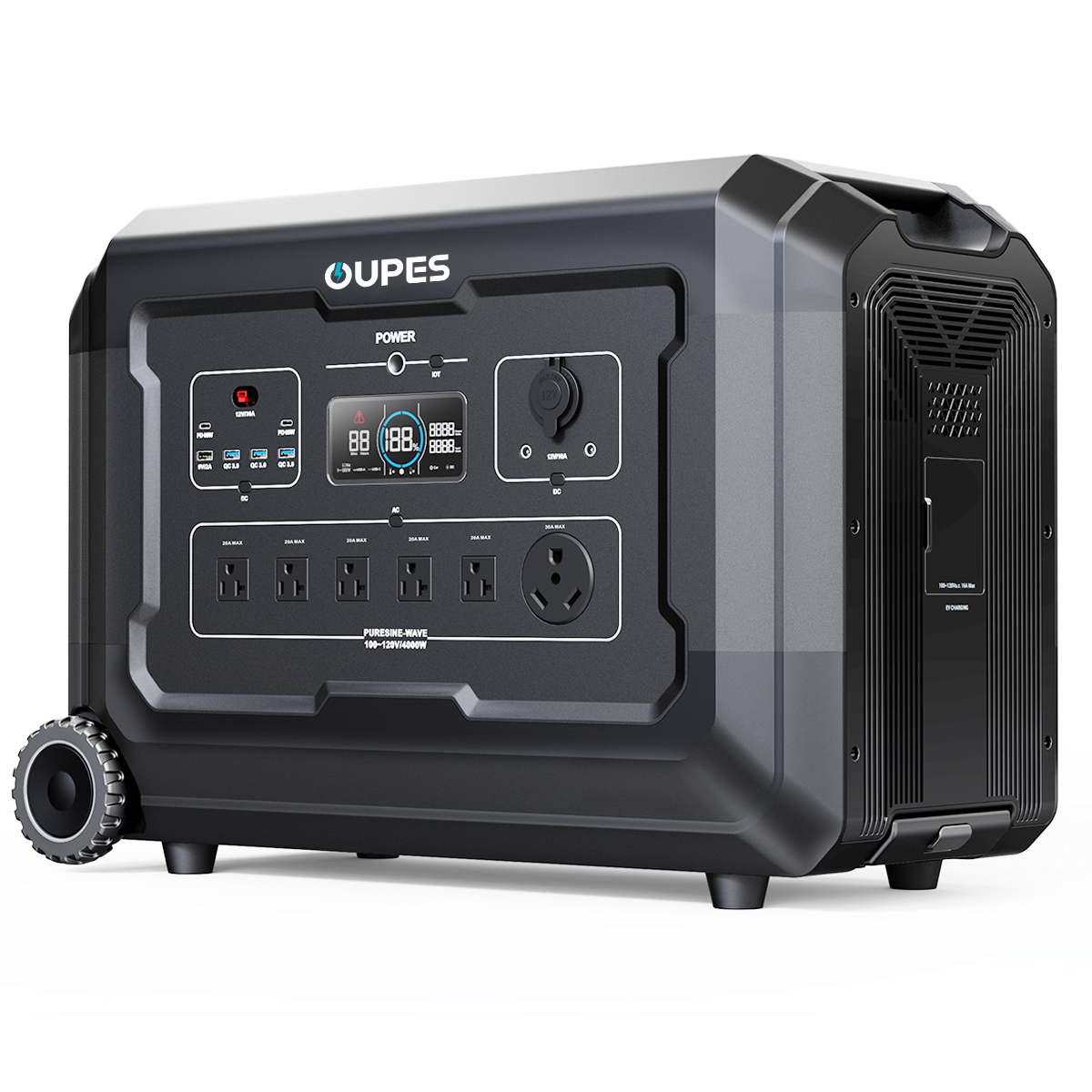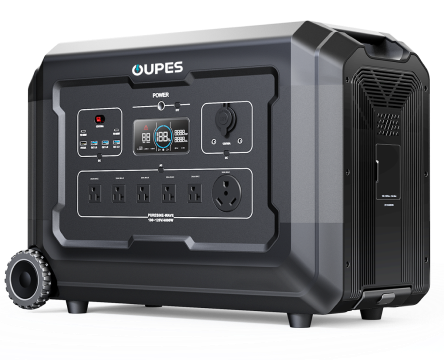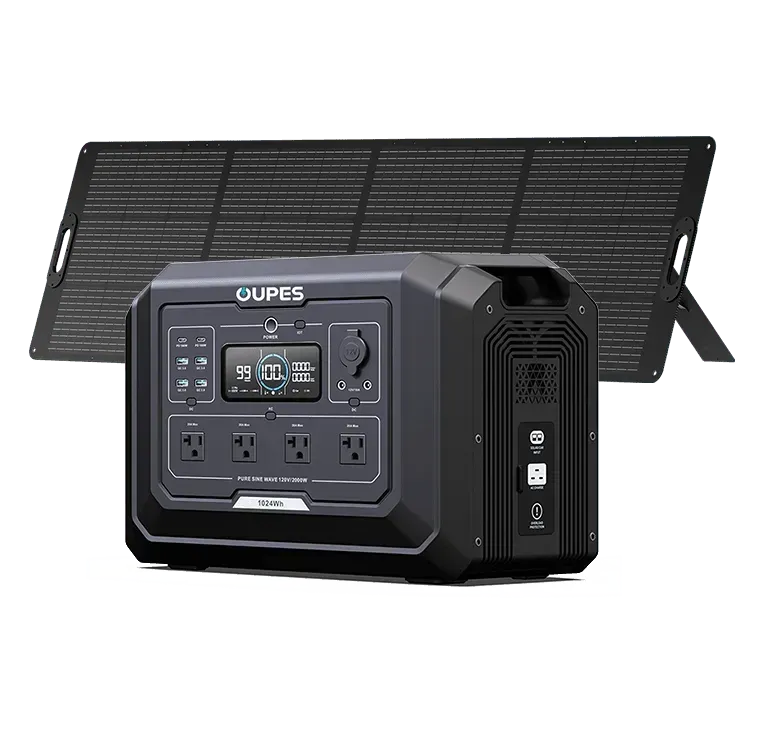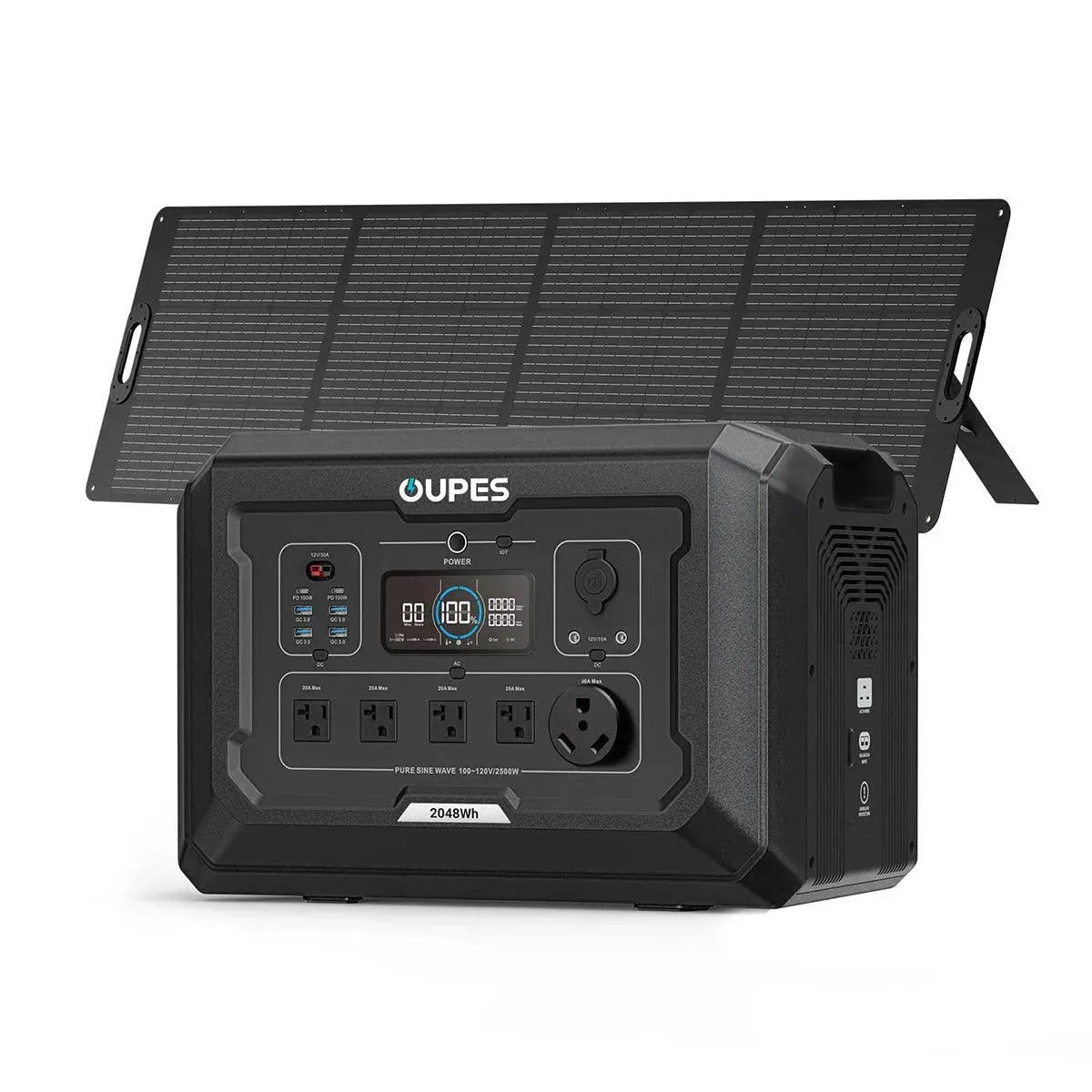
When deciding between a gas generator and a solar generator, the answer depends on your needs. Gas generators have been around for decades, but solar generators are quickly gaining popularity due to advances in battery storage and solar panel efficiency. This article compares both options across performance, cost, environmental impact, and practical applications to help you make an informed choice.
Understanding Gas vs. Solar Generators
Gas Generators
Gas generators use gasoline, diesel, or propane to generate electricity. They are known for high power output but require fuel, produce noise, and emit carbon emissions.
Solar Generators
Solar generators use solar panels to capture energy and store it in a battery. They operate quietly, require no fuel, and offer renewable, eco-friendly energy solutions.
Performance Comparison
| Feature | Gas Generator | Solar Generator |
|---|---|---|
| Power Output | High (suitable for heavy loads) | Medium to High (depends on capacity) |
| Noise Level | Loud (60–90 dB) | Quiet (below 60 dB) |
| Fuel Requirement | Gasoline, diesel, propane | Sunlight + rechargeable battery |
| Maintenance | Frequent oil, filter, and fuel checks | Minimal (panel cleaning, battery care) |
| Operation Time | Continuous with fuel supply | Limited by battery size, extendable with panels |
Cost Analysis
While gas generators are often cheaper upfront, long-term costs can be high due to constant fuel purchases and maintenance. Solar generators usually have higher initial costs but save money over time with free solar energy and minimal upkeep.
Cost Breakdown Example
| Category | Gas Generator | Solar Generator |
|---|---|---|
| Initial Purchase | Low to Moderate | Moderate to High |
| Fuel Costs | High (recurring) | None |
| Maintenance Costs | Moderate to High | Low |
| Lifetime Cost | High | Lower over time |
Environmental Impact
Gas generators produce emissions, noise pollution, and rely on fossil fuels, which contribute to climate change. Solar generators, by contrast, are clean, silent, and renewable. They align with sustainable living and reduce long-term environmental harm.
Best Scenarios for Each Generator
When Gas Generators Are Better
- Jobsites with heavy-duty power tool requirements
- Remote areas without solar exposure
- Situations requiring long-term, fuel-based power
When Solar Generators Are Better
- Camping, RVs, and outdoor adventures
- Emergency home backup for essential appliances
- Eco-friendly households reducing carbon footprint
- Urban apartments where noise and fumes are problematic
Why OUPES Solar Generators Stand Out
OUPES solar generators combine large-capacity LiFePO4 batteries, high inverter power, fast charging (solar + AC), and quiet operation. They are ideal for users who want reliable power without fuel dependency or harmful emissions. Expandable battery options make them suitable for both small needs and whole-home backup.
Frequently Asked Questions (FAQ)
1. Are solar generators powerful enough for home use?
Yes, high-capacity models can run refrigerators, lights, and even medical devices during outages.
2. How long can a solar generator last?
With LiFePO4 batteries, OUPES models last over 10 years with 3500+ cycles.
3. Can I use a solar generator at night?
Yes, stored battery power allows operation even without sunlight.
4. What fuel does a solar generator require?
None. Solar panels recharge the batteries, making them low-maintenance and cost-free to operate.
5. Do gas generators have any advantages over solar?
Gas generators offer higher short-term power output and continuous runtime with fuel, but come with added costs.
6. Are solar generators safe to use indoors?
Yes, unlike gas units, they produce no harmful fumes or emissions.
7. Can I expand a solar generator’s capacity?
Yes, many OUPES models allow expandable battery packs for greater flexibility.
Conclusion
Gas generators provide short-term, high-power solutions, but solar generators are the future of clean, reliable, and cost-effective energy. For most households, outdoor enthusiasts, and eco-conscious users, OUPES solar generators deliver long-term value and peace of mind. The best choice ultimately depends on your lifestyle and priorities.




























